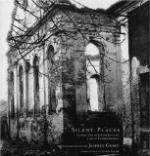The prints of two pairs of snow-shoes joined; those of one returned.
Sam gasped. Dick looked ironical. The interpretation was plain without the need of words. The Chippewa and the girl, although they had started to the southeast, had made a long detour in order again to reach Jingoss. These two pairs of snow-shoe tracks marked where they had considered it safe again to strike into the old trail made by the Chippewa in going and coming. The one track showed where Ah-tek had pushed on to rejoin his friend; the other was that of the girl returning for some reason the night before, perhaps to throw them off the scent.
“Looks as if they’d fooled you, and fooled you good,” said Dick, cheerfully.
For a single instant doubt drowned Sam’s faith in his own insight and in human nature.
“Dick,” said he, quietly, “raise your eyes.”
Not five rods farther on the trail the two had camped for the night. Evidently Ah-tek had discovered his detour to have lasted out the day, and, having satisfied himself that his and his friend’s enemies were not ahead of him, he had called a halt. The snow had been scraped away, the little fire built, the ground strewn with boughs. So far the indications were plain and to be read at a glance. But upright in the snow were two snow-shoes, and tumbled on the ground was bedding.
Instantly the two men leaped forward. May-may-gwan, her face stolid and expressionless, but her eyes glowing, stood straight and motionless by the dogs. Together they laid hold of the smoothly spread top blanket and swept it aside. Beneath was a jumble of warmer bedding. In it, his fists clenched, his eyes half open in the horrific surprise of a sudden calling, lay the Chippewa stabbed to the heart.
CHAPTER TWENTY-THREE
The silence of the grave lay over the white world. Deep in the forest a tree detonated with the frost. There by the cold last night’s camp the four human figures posed, motionless as a wind that has died. Only the dogs, lolling, stretching, sending the warm steam of their breathing into the dead air, seemed to stand for the world of life, and the world of sentient creatures. And yet their very presence, unobtrusive in the forest shadows, by contrast thrust farther these others into the land of phantoms and of ghosts.
Then quietly, as with one consent, the three living ones turned away. The older woodsman stepped into the trail, leading the way for the dogs; the younger woodsman swung in behind at the gee-pole; the girl followed. Once more; slowly, as though reluctant, the forest trees resumed their silent progress past those three toiling in the treadmill of the days. The camp dropped back; it confused itself in the frost mists; it was gone, gone into the mystery and the vastness of the North, gone with its tragedy and its symbol of the greatness of human passion, gone with its one silent watcher staring at the sky, awaiting the coming of day. The frost had mercifully closed again about its revelation. No human eye would ever read that page again.




